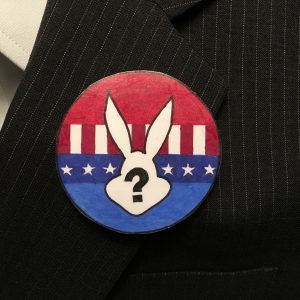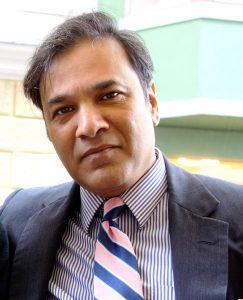by Michael Liss
 “You should look into this, perhaps write a little something about it.”
“You should look into this, perhaps write a little something about it.”
When Ed suggested something to you, it always emerged gently from his mouth as if on a cloud, and somehow morphed into a command by the time it reached your ears. He beckoned, I came, and now we were sitting together in one of his conference rooms, a MacBook and a bottle of unsweetened iced tea between us. My brand, in fact. It was a signal—he was telling me he knew, although we hadn’t talked in some time, that I’d gone cold turkey on Diet Coke. Of course he knew: he always knew, always was so wired in, always five steps ahead on everything. When we first met, roughly fifteen years ago, I had the absurd idea we were equals, but it took all of about a week for me to realize the central fallacy of that conceit. Still, he was remarkably good at recognizing and employing other people’s talents. And so, there would be a call or an email, and I would find myself conscripted to be a foot-soldier in Ed’s Army for some worthy cause.
I opened the iced tea, he clicked on a short YouTube clip, and I got my latest marching orders. Poke around, ask some questions, use that marvelous disguise of harmless late-middle age that allows me to pass unseen among men. Amass information, report back, write and post something. Topic: Bugs Bunny For President.
Of course, it sounds absurd, but, just how absurd is anything in politics these days? And Ed is a serious guy—if he’s lobbing this little gem at me, it means it’s not just him, but others in his happy little group are also considering it. So, on assignment, as it were, I’ve spent the last few weeks thinking, researching, looking at data, and talking to people. What I’ve found was that, the more I learned, the less irrational it seemed to be. Bugs Bunny for President. Doable. And desirable. Read more »






 In 1928, when Julia de Burgos was fourteen, Hurricane San Felipe devastated Puerto Rico. The Category Five storm left not a single building unscathed, least of all the wood casita in a mountain barrio in Carolina where De Burgos was born. Three hundred people died in what would be, for the next ninety years, the most violent storm in the island’s history. Julia de Burgos did not record her experience.
In 1928, when Julia de Burgos was fourteen, Hurricane San Felipe devastated Puerto Rico. The Category Five storm left not a single building unscathed, least of all the wood casita in a mountain barrio in Carolina where De Burgos was born. Three hundred people died in what would be, for the next ninety years, the most violent storm in the island’s history. Julia de Burgos did not record her experience. Easter Monday bank holiday feels like a good moment to put aside politics and consider something far more portentous: evolution. Recently I was walking alongside a canal in central London, surrounded by concrete, glass, steel and tarmac, when I heard the call of a grey wagtail. Looking to my right I saw this bold, fast, yellow-bottomed bird, which I associate with wild rocky rivers in the north, flitting into a canal tunnel. Later that week I stared up at two peregrine falcons circling high above parliament — and got funny looks from passers-by.
Easter Monday bank holiday feels like a good moment to put aside politics and consider something far more portentous: evolution. Recently I was walking alongside a canal in central London, surrounded by concrete, glass, steel and tarmac, when I heard the call of a grey wagtail. Looking to my right I saw this bold, fast, yellow-bottomed bird, which I associate with wild rocky rivers in the north, flitting into a canal tunnel. Later that week I stared up at two peregrine falcons circling high above parliament — and got funny looks from passers-by. There was a time, several decades ago, when America’s two-party system was praised for its moderation. Unlike European parliamentary democracies where “
There was a time, several decades ago, when America’s two-party system was praised for its moderation. Unlike European parliamentary democracies where “ Visit the average university campus and it is likely that the newest and most ostentatious building will be occupied by the business school. The business school has the best building because it makes the biggest profits (or, euphemistically, “contribution” or “surplus”) – as you might expect, from a form of knowledge that teaches people how to make profits.
Visit the average university campus and it is likely that the newest and most ostentatious building will be occupied by the business school. The business school has the best building because it makes the biggest profits (or, euphemistically, “contribution” or “surplus”) – as you might expect, from a form of knowledge that teaches people how to make profits. For the dozen
For the dozen 